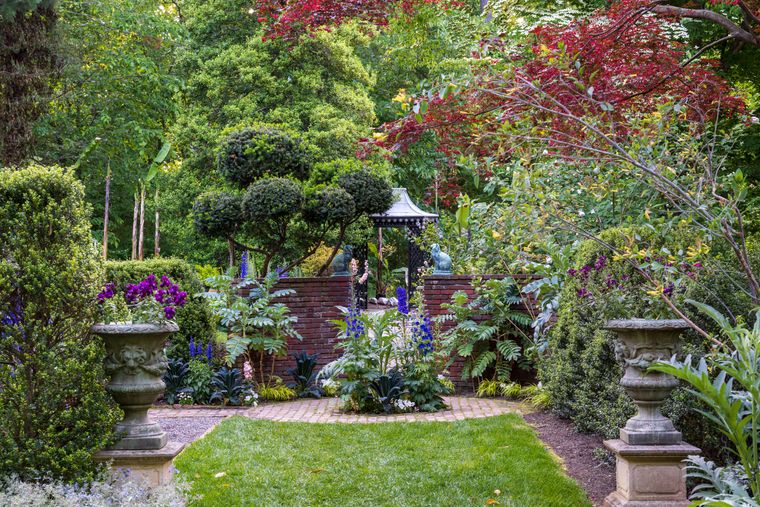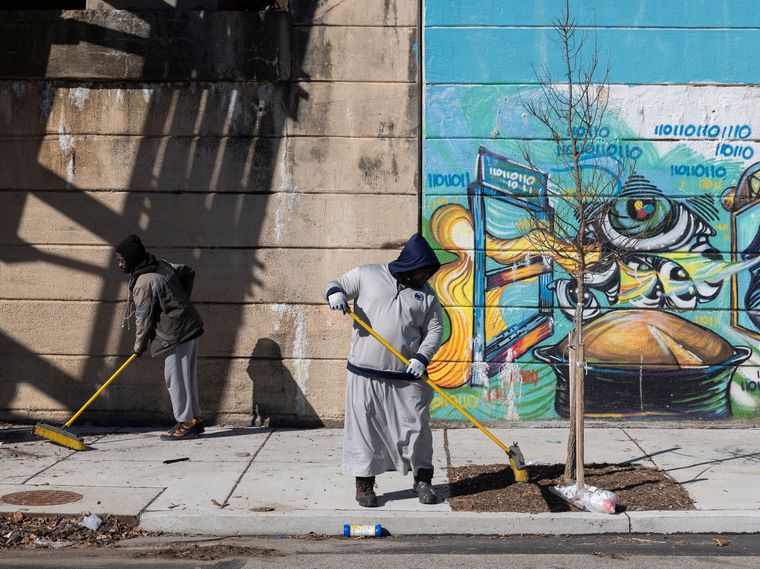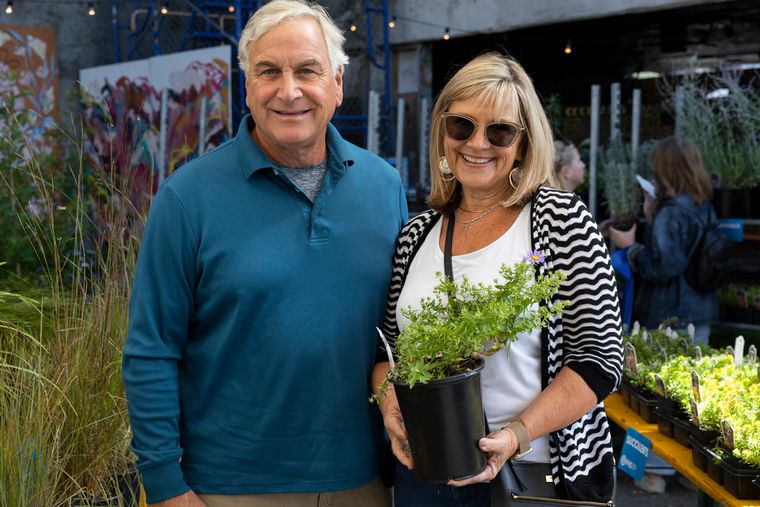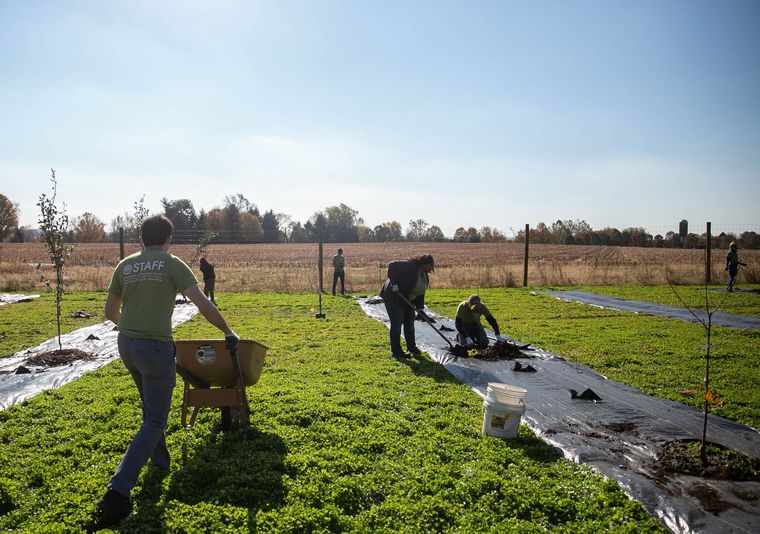



Celebrating Women in Horticulture: 3 Professional Gardeners Share Their Wisdom
phs community & events

By Melissa O'Brien
Women play a crucial role at all levels in the horticulture industry as growers, researchers, entrepreneurs, and employees. They also hold the bulk of the purchasing power as consumers of home and garden products. However, there is still a gap between the number of women and men in leadership roles within the industry.
PHS believes that horticulture and gardening belong to everyone. We spoke to three women who have worked in the horticulture industry for years to get their perspective on the challenges they’ve faced, how they overcame them, and why they’re so passionate about gardening.
Mae Lin Plummer is a gardener, Longwood Fellow, podcaster on BIPOC inclusion in horticulture, and Director of The IDEA Center for Public Gardens in Denver, Colorado. Abra Lee is also a Longwood Gardens Fellow, horticulturist, historian, and Founder of the social media platform Conquer the Soil, which raises horticultural awareness through Black garden history and current events. Lisa Roper has been a horticulturist at Chanticleer Garden in the Philadelphia suburbs for more than 30 years. Read on to learn more about their diverse experiences working in horticulture.

What does being a woman in horticulture mean to you?
“First and foremost, I feel very honored to be among an extraordinarily skilled and passionate group of women in this field. More personally, being a Chinese American woman in horticulture carries a sense of responsibility in representing diversity in our field and promoting public horticulture as a viable career option, and a fun one at that! Part of that means helping to change the perception of this work and advocating for greater professional development and equity. Gardening and horticulture, along with other labor-intensive jobs, are not always seen as skilled professions and it comes with certain prejudices, so it is an opportunity to help change that. “ - Mae Lin Plummer
“It means being part of a rich legacy of brilliant Black women that came before me and showed me what it means to have unshakeable confidence, build financial independence, and support your family through horticulture.” - Abra Lee
“When I was starting out, I looked towards women mentors in the field like Joanna Reed, a gardener with a creative, generous spirit who had a glorious garden in Malvern, Pa. I admired her energy, passion, talent, and the way she shared her garden. Working as a gardener means I can express myself creatively in a physical job while nurturing plants.” - Lisa Roper

What challenges do you or other women face in this industry?
“One of the challenges women face in horticulture is having a family. In any career, it’s difficult to take time off to give birth and take care of your baby, but in horticulture you have the added rigor of physical work as your body changes and your center of gravity shifts. I remember when I had my two boys while starting out as a gardener at Chanticleer, I read somewhere to take it easy while doing household chores and yet I was still performing physical jobs at work that I’m not sure I should have done. My male superiors weren’t requiring me to do this -- I just wasn’t sure what was reasonable.” - Lisa Roper
“I think the challenges we face as women have to do with the perception of who does work that is physical and labor intensive, what does a female leader look or act like, the need to prove ourselves and our abilities, and navigate advancing our careers based on our values while being subjected to stereotypes, discrimination, and harassment. And the fact that in many experiences, including mine, we just get used to it and accept it as the norm. Where I am now is being less afraid to set boundaries and shift what I accept or tolerate.” - Mae Lin Plummer
“I think a challenge many women face is affirmation. I was lucky that growing up in Atlanta, Black affirmation was all around me -- even in horticulture. A lot of people do not have that, and it’s unfortunate that it is considered a "unique" experience. I wish it weren't.” - Abra Lee

How do you support other women in the field?
“I have hired women in this field since I was 27 years old. I also recommend women in this field. When people ask me who to call for projects, I refer them to women I know. I employ women. Most importantly, I share information about pay (numbers and contracts) with these women, so they aren't getting compensated less than their worth on a project.” -Abra Lee
“One of the ways is by telling my story as much as possible and coaching young women. It's not that my story is all that unique or special, but it is a window into a zigzag career path, turning criticisms into learning opportunities and strengths, and embracing self-acceptance and self-worth. I think it provides others with a sense of validation and comfort in knowing they are not alone, especially if they are confused as to ’what to be when they grow up.’ I also started Never Stop Talking Associates last year to inspire people to lean into their distinctions, and I started a podcast as part of that platform called ’Plant People in Plant Places.’ My intent with the podcast is to elevate the diverse voices of plant people everywhere.” -Mae Lin Plummer
“I support women starting out in the field, including Chanticleer interns and Longwood students (who volunteer to work on weekends at Chanticleer). We discuss education, career direction, and challenges. I teach gardening techniques and design principles as we work together in the garden. I love to follow up with them after they’ve launched and hear their stories.” -Lisa Roper
What would you tell a little girl or young woman who is just getting interested in gardening?
“Know your worth and your value and learn how to communicate it. Also, have fun! Don't let anyone have the power to take your joy away from you.” -Mae Lin Plummer
“Horticulture is a profession that I hadn’t even heard of as a student in high school. Yet it is such a vast career with so much opportunity! Horticulture is a stimulating blend of science and art, a field where one continues to learn. Many internships exist both in the states and abroad. It’s a physical, healthy lifestyle and it is so satisfying and rewarding to grow a plant or a garden.” -Lisa Roper
“There is nothing wrong with being self-taught. Some of the greatest gardeners in the world are self-taught. Also, find the things that interest you in horticulture -- the things that keep you up at night and excite you! That way, you will never be bored -- and once you get bored, re-invent yourself. Give yourself room and runway to fail. Also, there are limitless paths to take which is probably the most fun part about horticulture. Like cooking, you can make anything happen.” -Abra Lee
Interested in gardening for the greater good? Sign up to get PHS gardening resources and event updates.

